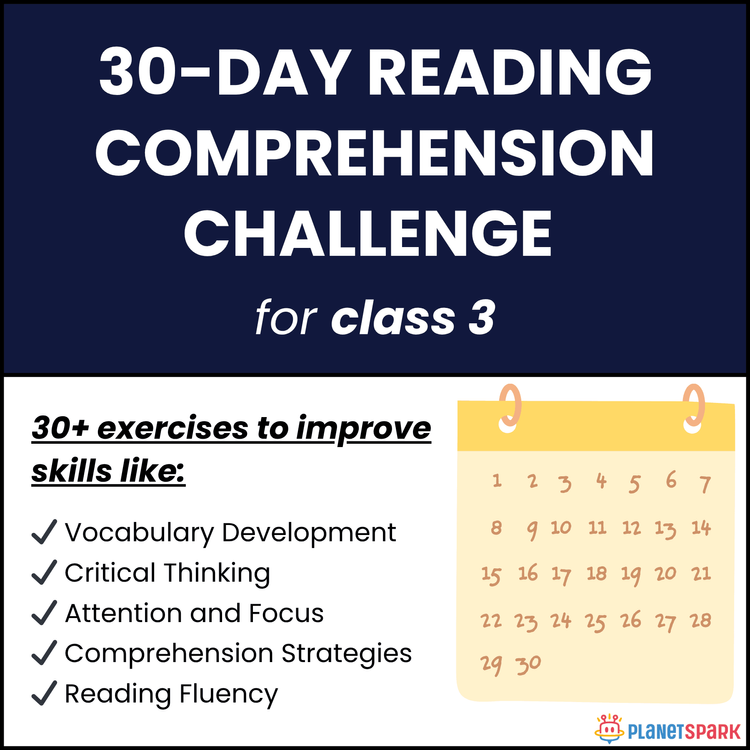The Adventure Class 11 Questions and Answers | Summary and Notes
Last Updated At: 1 Dec 2025
14 min read
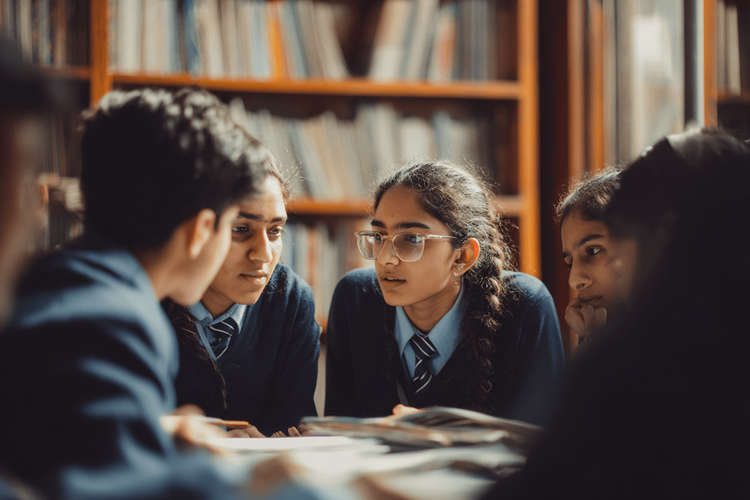
Table of Contents
- The Adventure Class 11 Questions and Answers
- Summary – The Adventure Class 11 Questions and Answers
- About the Author – Jayant Narlikar
- Character Sketches
- Theme of ‘The Adventure’
- Key Takeaways and Lessons from ‘The Adventure’
- Why Choose PlanetSpark for Storytelling and Reading Skills
- Conclusion - The Adventure Class 11 Questions and Answers
- FAQs - The Adventure Class 11 Questions and Answers
The Adventure by Jayant Narlikar is a fascinating story that blends history, science, and imagination. It follows Professor Gangadharpant Gaitonde, who experiences an extraordinary event that makes him witness an alternate version of Indian history, where the Marathas won the Battle of Panipat. The story raises thought-provoking questions about reality, historical events, and the role of chance in shaping history.
In this blog, we provide the Adventure Class 11 questions and answers, covering all important aspects of the story. This CBSE-style Q&A will help students understand key events, themes, and scientific ideas presented in the narrative. With this guide, Class 11 students can confidently analyze the story and prepare for their exams.
The Adventure Class 11 Questions and Answers
This section provides detailed answers to help students understand The Adventure Class 11 and excel in exams. All answers follow the CBSE style, with references to the text and explanations for clarity.
The Adventure Class 11 Questions and Answers - Understanding the Text
I. Tick the statements that are true:
❌ The story is an account of real events.
✅ The story hinges on a particular historical event.
✅ Rajendra Deshpande was a historian.
❌ The places mentioned in the story are all imaginary.
✅ The story tries to relate history to science.
Boost Your Child’s English Skills!
Join PlanetSpark’s interactive sessions and get personalized help
II. Briefly explain the following statements from the text:
“You neither travelled to the past nor the future. You were in the present experiencing a different world.”
This statement explains that Professor Gaitonde did not physically travel through time. Instead, due to a catastrophic event and his thoughts on history, he experienced an alternate reality in the present where history had taken a different course.
“You have passed through a fantastic experience: or more correctly, a catastrophic experience.”
Rajendra describes the professor’s adventure as a catastrophic experience because a small, critical event—the Battle of Panipat, caused an alternative historical scenario to unfold, which Gaitonde experienced firsthand.
Gangadharpant could not help comparing the country he knew with what he was witnessing around him.
On entering the alternate reality, he observed a stronger, independent India under the Marathas. He compared it to the India he knew, which had been under colonial influence, highlighting the contrast between reality and this “what-if” scenario.
“The lack of determinism in quantum theory!”
This refers to the principle that the behavior of tiny particles, like electrons, cannot be predicted with certainty. Rajendra uses this as an analogy to explain how multiple alternative worlds could exist simultaneously, with only one experienced at a time.
“You need some interaction to cause a transition.”
Gaitonde’s thoughts on the catastrophe theory and the Battle of Panipat, combined with the collision, acted as a trigger to transition him into the alternate reality, illustrating how specific conditions can lead to different outcomes.
The Adventure Class 11 Questions and Answers - Talking About the Text
Discuss the statements in pairs:
(i) A single event may change the course of the history of a nation.
The story supports this idea, as a slight change in the Battle of Panipat—Vishwasrao surviving—alters the entire historical trajectory of India.
(ii) Reality is what is directly experienced through the senses.
The story challenges this notion. While Gaitonde experiences an alternate reality, it is as vivid and “real” as his own, suggesting that reality can have multiple layers beyond sensory perception.
(iii) The methods of inquiry of history, science, and philosophy are similar.
In the story, Gaitonde uses historical records, catastrophe theory, and rational reasoning to understand events, showing that these disciplines, though different, often intersect in analyzing possibilities.
Comparison and Reflection:
Adventure in “The Adventure” vs. “We’re Not Afraid to Die…”
The Adventure focuses on a mental and historical journey exploring alternate realities, whereas We’re Not Afraid to Die… narrates a physical adventure with immediate life-threatening challenges.
Why did Professor Gaitonde decide never to preside over meetings again?
He was humiliated when his attempt to defend the chair at Azad Maidan failed. The audience rejected his authority, and the experience discouraged him from presiding at any future meetings.
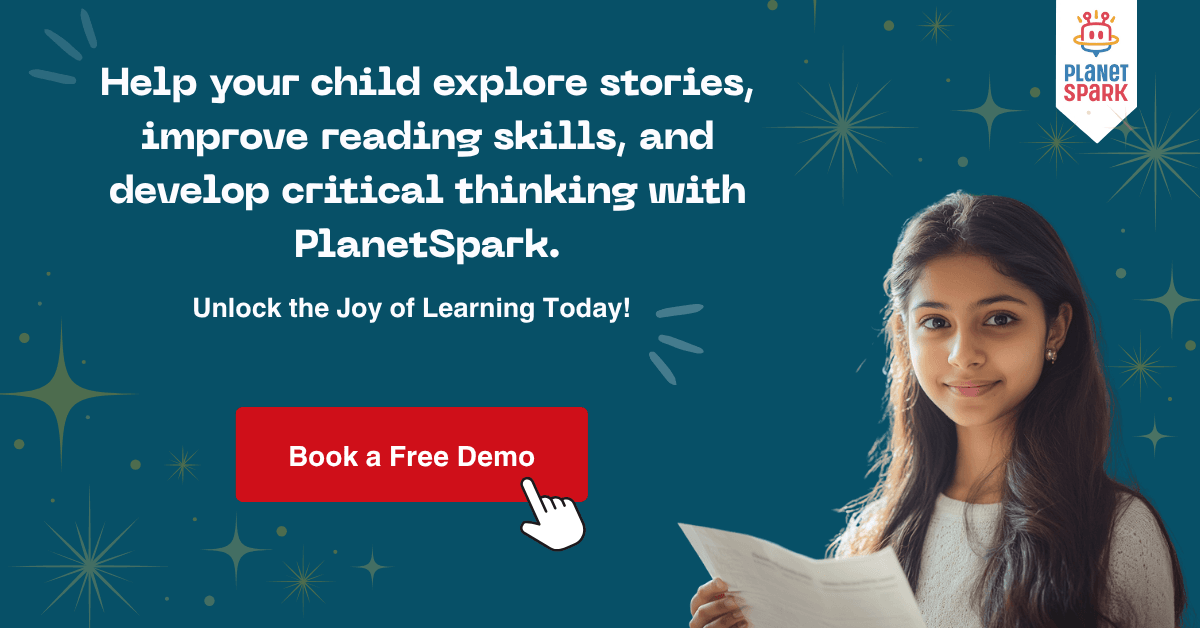
The Adventure Class 11 Questions and Answers - Thinking About Language
Q1. In which language do you think Gangadharpant and Khan Sahib talked to each other? Which language did Gangadharpant use to talk to the English receptionist?
Answer: Gangadharpant likely spoke Marathi or Hindi with Khan Sahib, as it was the local language in Pune and the surrounding areas. He used English to communicate with the English receptionist, as she belonged to the Anglo-Indian/English community and English was the medium of official communication.Q2. In which language do you think Bhausahebanchi Bakhar was written?
Answer: Bhausahebanchi Bakhar was written in Marathi, as it is a historical chronicle of the Marathas and reflects the language and literary style of the period.Q3. There is mention of three communities in the story: the Marathas, the Mughals, the Anglo-Indians. Which language do you think they used within their communities and while speaking to the other groups?
Answer: Each community primarily used its own language internally: Marathas used Marathi, Mughals used Persian or Urdu, and Anglo-Indians used English. When interacting with other communities, they often used a common language understood by both, such as Marathi, Hindi, or English, depending on the context.Q4. Do you think that the ruled always adopt the language of the ruler?
Answer: No, the ruled do not always adopt the ruler’s language. While they may use the ruler’s language for official or administrative purposes, they usually retain their native language and culture for daily communication and local traditions.
The Adventure Class 11 Questions and Answers - Working with Words
I. Choose the correct meaning:
To take issue with – (iii) to disagree
To give vent to – (i) to express
To stand on one’s feet – (ii) to be independent
To be wound up – (ii) to stop operating
To meet one’s match – (iii) to meet someone equally able
II. Distinguish between the following pairs:
(i) He was visibly moved – emotionally affected
(ii) He was visually impaired – lacking eyesight(i) Green and black stripes were used alternately – in a repeated sequence
(ii) Green stripes could be used or alternatively black ones – as options(i) The team played the two matches successfully – achieved success
(ii) The team played two matches successively – one after the other(i) The librarian spoke respectfully to the learned scholar – showing respect
(ii) You will find the historian and the scientist in the archaeology and natural science sections – specifying locations
The Adventure Class 11 Questions and Answers - Noticing Form
Q1. What kind of conditions does the story ‘The Adventure’ deal with?
Answer: The story deals with unreal and hypothetical conditions, exploring situations that could have happened differently but did not actually occur.
Q2. Give examples of sentences in the story that express unreal or hypothetical conditions.
Answer: Some examples from the story are:
“If I fire a bullet from a gun in a given direction at a given speed, I know where it will be at a later time.”
“If I knew the answer I would solve a great problem.”
“If he himself were dead in this world, what guarantee had he that his son would be alive?”
“What course would history have taken if the battle had gone the other way?”
Q3. How can you identify an unreal condition in a sentence?
Answer: An unreal condition is identified when the sentence expresses a situation that is hypothetical or contrary to fact, clearly suggesting that the condition will not be fulfilled. Words like if, would, or had are often used to indicate such conditions.
Sign up for a free demo today and enhance your child’s reading, writing, and comprehension skills!
Summary – The Adventure Class 11 Questions and Answers
The Journey to Bombay
Professor Gangadharpant Gaitonde boards the Jijamata Express from Pune to Bombay, observing the familiar and changing landscapes. As a historian, he plans to research historical events in a library in Bombay and consult his colleague, Rajendra Deshpande. The journey sets the stage for his adventure, blending ordinary travel with anticipation of discovering historical truths.
Arrival and Discovery
Upon reaching Bombay, Gangadharpant is surprised to find an alternate historical reality: the East India Company is still operational, and the Marathas have secured a significant victory at the Battle of Panipat. The cityscape and institutions reflect a history that differs from the one he knew, highlighting the story’s central theme of “what if” scenarios in history.
Research and Investigation
Determined to understand this alternate history, Gangadharpant visits the Town Hall library and studies historical texts, including his own works. He discovers the crucial moment in history where the Marathas’ victory altered the political landscape of India. This research confirms the shift in events and emphasizes the role of small changes in shaping history.
The Catastrophic Experience
While exploring, Gangadharpant experiences a bizarre, two-day gap in reality, which he later discusses with Rajendra. Rajendra explains the experience using catastrophe theory and quantum ideas, suggesting that Gangadharpant temporarily witnessed an alternative reality. This section blends science and history, showing how a single event can alter outcomes drastically.
Realizations and Reflection
At the end of his adventure, Gangadharpant reflects on the importance of seemingly minor events in history and the unpredictability of reality. He also realizes that some experiences cannot be fully rationalized but provide valuable insight into history, science, and human perception. This section ties together the story’s philosophical and scientific undertones.
About the Author – Jayant Narlikar
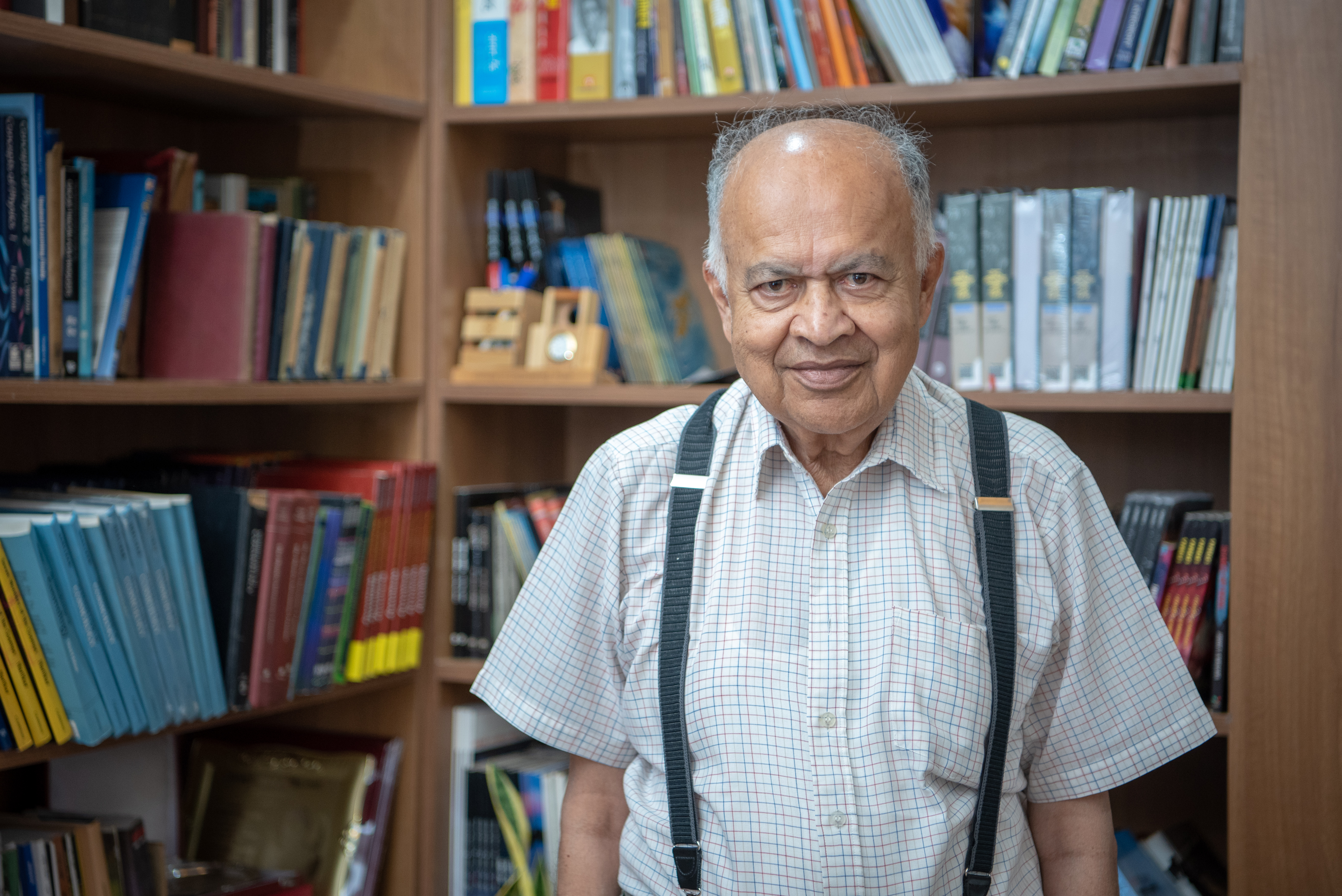
Jayant Narlikar is a renowned Indian astrophysicist and science writer, celebrated for his contributions to cosmology and popular science. Apart from his scientific work, he has a talent for making complex concepts accessible through storytelling. In The Adventure, Narlikar blends historical imagination with scientific ideas, inviting readers to explore alternate realities while reflecting on history, science, and human curiosity.
Interactive Learning Awaits!
Reserve your free demo to make reading and studying The Adventure Class 11 Questions and Answers engaging and fun.
Character Sketches
1. Professor Gangadharpant Gaitonde
Professor Gaitonde is a dedicated historian with a keen intellect and an insatiable curiosity. He is methodical and deeply committed to understanding history, but he also has a sense of adventure and wonder. His encounter with an alternate reality challenges his perception of history and reality, showing his openness to new ideas and scientific reasoning.
2. Rajendra Deshpande
Rajendra is a rational and analytical thinker who helps Professor Gaitonde make sense of his extraordinary experience. Through his explanations of catastrophe theory and quantum ideas, he bridges science and history, guiding the professor to interpret the events logically while appreciating their fantastical nature.
3. Khan Sahib
Khan Sahib is an Anglo-Indian railway official who provides Gangadharpant with guidance and insights into the world he encounters. His courteous and informative demeanor helps the professor navigate unfamiliar surroundings and understand the context of his journey.
4. Vishwasrao and Bhausaheb
Though historical figures, in the story they represent pivotal points in the alternate history experienced by Gangadharpant. Vishwasrao’s near-death and Bhausaheb’s bravery influence the outcome of the Battle of Panipat, highlighting how individual actions can shape history.
Theme of ‘The Adventure’
The Adventure explores the interplay of history, science, and human perception. It highlights how a single event can drastically alter the course of history, emphasizing the fragile nature of human outcomes. The story also delves into the concept of alternate realities, suggesting that what we perceive as reality may not be unique, and that multiple possibilities can coexist. Through Professor Gaitonde’s journey, the narrative reflects on the importance of curiosity, analytical thinking, and the courage to question established knowledge. It ultimately conveys that history is not just a series of dates and events but a dynamic process influenced by decisions, chance, and human actions.
Key Takeaways and Lessons from ‘The Adventure’
The Adventure offers several important insights for readers:
History is shaped by small events – The story demonstrates how a single incident, like Vishwasrao narrowly escaping a bullet, can change the outcome of a battle and alter history.
Reality is not always absolute – The narrative introduces the idea of alternate realities, showing that our perception of the world may differ from what could have occurred under different circumstances.
Curiosity drives discovery – Professor Gaitonde’s determination to explore history, analyze evidence, and understand the consequences of events highlights the value of inquisitiveness and critical thinking.
Interdisciplinary learning – By connecting history with scientific concepts like the catastrophe theory and quantum theory, the story encourages readers to think across subjects and understand complex phenomena from multiple perspectives.
Courage to question norms – Gaitonde challenges conventional thinking, whether in historical interpretations or social customs, reminding us that questioning established norms is essential for learning and growth.
Appreciation of cultural heritage – The story emphasizes the significance of understanding one’s past and valuing historical and cultural knowledge.
Perspective on human resilience – The characters’ actions, and the Marathas’ ability to influence history, reflect how courage, strategy, and determination can shape outcomes even in critical situations.
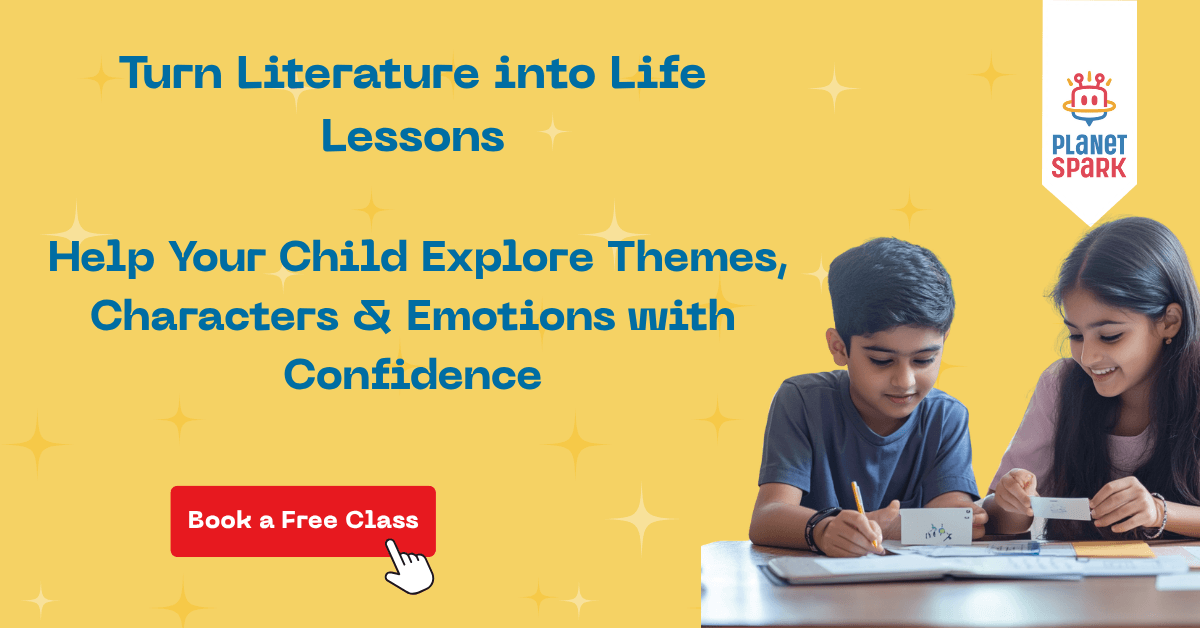
Why Choose PlanetSpark for Storytelling and Reading Skills
The Adventure encourages curiosity, imagination, and comprehension, skills that PlanetSpark nurtures in every student.
Enhancing Reading Comprehension: Our programs help children understand complex stories, identify key ideas, and connect events, just like following Professor Gaitonde’s journey in the story.
Developing Storytelling Skills: Students learn to narrate stories effectively, express ideas clearly, and bring characters and events to life, fostering confidence in communication.
Critical Thinking Through Stories: PlanetSpark encourages learners to analyze plots, explore “what if” scenarios, and think beyond the text—mirroring the story’s theme of alternate possibilities.
Interactive Learning: Children participate in engaging exercises, discussions, and creative writing sessions that make reading and storytelling fun and meaningful.
Building Curiosity and Imagination: By exploring different worlds and perspectives in stories, students develop imaginative thinking, a love for reading, and a deeper understanding of narratives.
At PlanetSpark, we make reading, storytelling, and studying not just educational but exciting, helping children become thoughtful readers, confident speakers, and creative thinkers.
Conclusion - The Adventure Class 11 Questions and Answers
The Adventure by Jayant Narlikar is not just an exciting story, it challenges readers to think critically about history, science, and alternate realities. Through Professor Gaitonde’s journey, students learn to explore “what if” scenarios, understand complex narratives, and appreciate the connections between events and consequences. By studying this story, Class 11 students strengthen their reading comprehension, analytical skills, and imagination. Engaging with such stories also encourages curiosity and storytelling abilities, which are essential for academic success and creative expression.
FAQs - The Adventure Class 11 Questions and Answers
1. What is the main idea of The Adventure?
The story explores how a single historical event can change the course of history, blending elements of science, alternate realities, and critical thinking through Professor Gaitonde’s experience.
2. Who are the key characters in the story?
The main characters are Professor Gangadharpant Gaitonde, Rajendra Deshpande, Khan Sahib, and historical figures like Vishwasrao and Bhausaheb, who play roles in the alternate history narrative.
3. How does the story relate history to science?
It connects historical events, such as the Battle of Panipat, to concepts from catastrophe theory and quantum theory, showing how small changes can lead to very different outcomes.
4. What skills can students develop by studying this story?
Students enhance reading comprehension, critical thinking, analytical reasoning, and storytelling skills, while also learning to explore imaginative and hypothetical scenarios.
5. How can PlanetSpark help in understanding stories like The Adventure?
PlanetSpark’s programs focus on reading comprehension, storytelling, and creative expression. Students learn to analyze texts deeply, understand characters and plots, and confidently narrate stories, making learning both engaging and effective.
Download Free Worksheets
Recommended Tests
Personalized Communication Report
Record a video to get a AI generated personalized communication report for your child
Select Learner's Class

